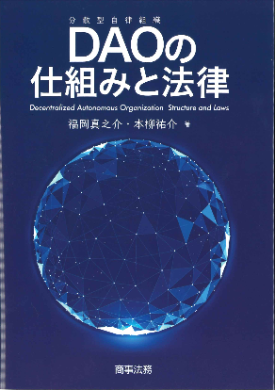-
Articles
The Amended Copyright Act
On 24 February 2022, the Copyright Act of Thailand (No. 5) B.E. 2565 (2022) (the “Amended Act”) was published in the Government Gazette, to amend the Copyright Act of Thailand B.E. 2537 (1994) (the “Current Act”). The Amended Act will come into effect as of 23 August 2022.
The purpose of the Amended Act is: for preparation of Thailand’s accession to the WIPO Copyright Treaty (1996); to update provisions regarding the Internet, online protection measures and enforcement thereof; and to revise liabilities and exemptions for service providers to be more efficient and practical under the new digital era.
Key provisions of the Amended Act can be summarised as follows:
- Term of Protection for Photographic Work
Under the Amended Act, the term of copyright protection for photographic work is 50 years from the date of its creation; however, if the work is published during such period, the copyright subsists for 50 years as from the date of its first publication. This is in accordance with Section 21 of the Current Act, which provides that: “Copyright in a photographic work, an audiovisual work, a cinematographic work, a sound recording or a broadcast shall last for 50 years after the creation of such work, but if the work has been published during such period, copyright shall last for 50 years after the first publication of the work.”
Under the Amended Act, the word “photographic” is excluded from the text of Section 21, leaving only audiovisual work, cinematographic work, sound recording or broadcast in the provision. Consequently, photographic work shall fall within the general duration of protection; extending the term of copyright to “the lifetime of the author plus 50 years”. This amendment is mainly to prepare for the accession of Thailand to the WIPO Copyright Treaty. However, the Amended Act clearly stipulates that the extension of protection is not applicable to photographic work of which the copyright protection term has already expired prior to 23 August 2022.
- Definition of Technological Protection Measures and Violation Thereof
Under the Amended Act, the term “Technological Protection Measures” (TPM) is defined more broadly than under the Current Act. The Amended Act defines TPM as: “technology designed to protect the rights of a copyright owner or a performer; or technology efficiently used to control access to a copyrighted work or recording material of a performance”. The Amended Act also clearly sets forth various TPM violations, including: prohibiting the provision of services to circumvent TPMs; and imposing liabilities against manufacturers, sellers or distributors of products, equipment or services intended to circumvent TPMs.
- Broader Definition of Service Provider
Under the Amended Act, the definition of ‘Service Provider’ is broader than the Current Copyright Act. The definition of ‘Service Provider’ under the Amended Act also covers internet hosting service providers and search engine service providers, whereas only intermediary internet service providers and caching internet service providers are considered as Service Providers under the Current Act.
In this regard, there will be four types of Service Provider under the Amended Act: (1) intermediary service providers; (2) caching service providers; (3) hosting service providers; and (4) search engine service providers.
- Safe Harbour for Service Providers
The Amended Act prescribe new safe harbour provisions that exempt Service Providers from liability for copyright infringements committed by users. In order to qualify for the safe harbour protection under the Amended Act, Service Providers must explicitly announce and enforce their repeat infringer policies and also comply with specific requirements for each type of Service Provider as prescribed under the Amended Act. The new safe habour conditions under the Amended Act are less strict than the Current Act, where a Service Provider is only exempt from liability if it complies with the court’s injunctive order to take down the infringing material.
- Measures Against Online Infringement
This seems to be the most significant issue under the Amended Act because Section 32/3 of the Current Act has proved to be problematic and inefficient in practice ever since its introduction in 2015. The Amended Act aims to remove Section 23/3 of the Current Act and introduce a new series of measures against online infringement, which allow a copyright owner to take direct action against copyright work infringement on an online platform without the requirement to obtain a court order first.
Under the Amended Act, if a copyright owner has reasonable grounds to believe that a copyrighted work has been infringed on a computer system, they may send a notice to the Service Provider instructing it to remove an alleged copyright work, reference source or connection or access point to such work from their computer systems, or cease to provide access to such computer data. If the notice from a copyright owner meets the requirements, the Service Provider must remove or disable access to the allegedly infringing material without delay.
The Service Provider must subsequently notify the user who posted the allegedly infringing material in order to allow the user to oppose the removal by sending a counternotice to the Service Provider. If the user submits a counternotice, the Service Provider must forward a copy of the counternotice to the copyright owner in order to notify it that it will restore the removed content or cease blocking the access within 30 days of receiving the counternotice. After the 30-day period ends, unless the copyright owner files a lawsuit against the alleged infringer/user, the Service Provider is required to restore the data or cease blocking access to it within 15 days.
Mr. Vuttikrai Leewiraphan, Director-General of the Department of Intellectual Property, said: “[t]he amended law allows Internet-based service providers such as Facebook and YouTube to remove pirate content from their systems as soon as they are informed of the offence without having to seek a relevant court order. The amended law also supports the important soft power policy of the Ministry of Commerce, which seeks to globally promote the potential of the Thai digital content industry, which is worth Baht 209 billion annually”.








Pavinee is a leading expert in intellectual property (IP) law. She joined the Intellectual Property Practice Group of SCL Law Group (currently known as SCL Nishimura & Asahi) as an associate upon its formation in 2005. Prior to that, Pavinee was an in-house legal counsel at many companies where she gained extensive hands-on experience within general law practice, IP and e-commerce related matters. She also gained comprehensive knowledge of contracts and telecommunications working with government agencies while she was an in-house legal counsel. Pavinee was a guest lecturer and speaker on IP and information law at various forums. Currently, Pavinee routinely advises major clients on matters relating to trademark and patent registrations, copyright recordation, license agreements, as well as trademark, patent and copyright infringement. Versatile and keen, she also assists with overseas trademark and patent registration applications and acts as counsel providing expert guidance to clients throughout IP enforcement process and litigation proceedings. She has been consistently consulted with on cases involving electronic trade and commerce, domain name registrations and personal data and privacy protection. Representing numerous international and domestic organizations in both public and private organizations, Pavinee takes advantage of a refined understanding of IP prosecutions and commercial risk to deliver to the clients borderless and practical legal advice based upon reliable and comprehensive understanding of the laws, regulations and best practices in Thailand. With her comprehensive knowledge and extensive experience, she is well-equipped to meet the clients’ diverse needs whereby she tailors her legal service and professional advice to suit the particular needs of each client. Pavinee was also named an IP expert by magazines[Ed: I suggest listing which magazines, or listing only a couple if there are many.]. AsiaIP Informed Analysis and the 2022 edition of World Trademark Review 1000 are publishing the recent list.